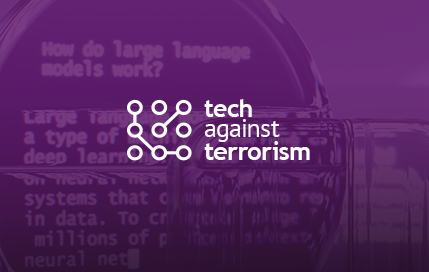Press Release: Tech Against Terrorism’s Assessment Following Hamas-Attributed Attack in Jaffa, Israel
Tech Against Terrorism warns of the potential for further attacks and emphasises the need for continued vigilance.
3 min read
Tech Against Terrorism Oct 7, 2024 9:06:27 AM
As tensions in the Middle East continue to escalate, the threat of terrorist and extremist content spreading across online platforms is growing. Following the latest developments in the region, Tech Against Terrorism calls on tech platforms to take immediate and decisive action to prevent the dissemination of said content.
Key points:
Escalation of Conflict and Extremist Content: The ongoing conflict, including Iran's missile attack on Israel and Israel’s ground offensive in Lebanon, has led to a surge in terrorist and extremist content online, particularly from Hezbollah-affiliated sources. This content poses risks such as incitement to violence, graphic livestreams, and radicalisation.
Call for Immediate Action by Tech Platforms: Tech Against Terrorism urges tech platforms to take swift action to prevent the spread of extremist content. This includes improving monitoring capabilities, enhancing cross-platform intelligence sharing, and proactively removing harmful material.
Specific Recommendations for Tech Companies: Suggested measures include early detection and removal of graphic content, equipping moderators with contextual knowledge, leveraging regional experts, promoting credible sources, and enforcing strict community guidelines to curb the spread of terrorist content.
London, 7 October 2024 - On 01 October 2024, Iran launched a significant missile attack against Israel, firing between 180 and 200 ballistic missiles according to Israeli authorities. On the same evening, at least seven people were killed and ten wounded in a shooting and knife attack in Jaffa, Israel. These attacks are part of a series of escalating hostilities in the region, which include Israel's ongoing ground offensive in Lebanon and the killing of Hezbollah leader Hassan Nasrallah in September 2024.
The growing intensity of this conflict has led to a sharp increase in the volume of terrorist and extremist content being shared online. For example, Hezbollah-affiliated media outlets are pushing out large amounts of content that glorifies violence and fuels further radicalization. The presence of this content poses a variety of risks including: content inciting international terrorist attacks, graphic livestreams, and an overall increase of terrorist and violent extremist content (TVEC).
Said rise in harmful content presents a serious challenge to tech platforms, which must now ramp up their efforts to monitor and remove terrorist material. At Tech Against Terrorism, we have activated our Incident Response Protocol, working directly with tech companies to alert them to this dangerous content. While bystander footage related to the conflict is not yet within the scope of our Terrorist Content Analytics Platform (TCAP), we are collaborating with platforms to address this emerging threat.
Adam Hadley, Executive Director and Founder of Tech Against Terrorism, stressed the importance of proactive measures:
"The escalating conflict in the Middle East is causing a dangerous increase in terrorist content online. It is vital that tech platforms take immediate steps to prevent this material from spreading. By enhancing their monitoring capabilities and improving cross-platform threat intelligence, they can play a key role in mitigating the threat."
Call to Action:
Specific recommendations for tech platforms
To help platforms tackle the spread of terrorist content in the face of this conflict, Tech Against Terrorism is urging tech companies to implement the following measures:
Early Detection and Removal of Harmful Content: Tech platforms should prioritise the quick identification and removal of terrorist livestreams and violent or graphic videos, especially those involving civilians, hostages, and military forces. Ensuring swift action can limit the spread of harmful content.
Prepare for Graphic Content: Platforms should anticipate and be ready to handle videos showing extreme violence, including potential executions of civilians and military personnel taken hostage. Recent conflicts, such as the Ukraine war and the 7 October 2023 Hamas attacks on Israel, highlight the need to expect highly graphic footage captured via drones or body-worn cameras.
Equip Moderators with Contextual Guidance: Content moderators should be well informed with up-to-date policies and advice on regional contexts to accurately assess such footage in line with legal standards and platform terms of service.
General recommendations for tech platforms
Proactive Monitoring: Tech platforms need to engage in active monitoring to disrupt terrorist and violent extremist (TVE) activity, focusing on audiovisual, text-based content and even financing and crowdfunding activities.
Leverage Regional and Language Experts: Moderation teams should collaborate with regional and language experts to improve accuracy in identifying harmful content. Resources like Tech Against Terrorism’s language database can be invaluable in this effort.
Promote Credible Information: Platforms should clearly label and highlight trustworthy sources of information about ongoing conflicts to combat the spread of misinformation and disinformation.
Efficient Content Hashing and Archiving: Content that violates platform rules should be hashed and stored for quick future detection. When necessary, archive such content to share with law enforcement, especially in cases related to war crimes or crimes against humanity.
Stay Updated on Legal Frameworks: Platforms must stay informed about evolving online regulations, particularly regarding terrorist group designations, which can influence the legality of content and affect the platform's obligations.
Strict Enforcement of Guidelines: Platforms should strictly enforce their community guidelines, ensuring that any content promoting terrorism or shared by TVE entities is promptly removed.

Tech Against Terrorism warns of the potential for further attacks and emphasises the need for continued vigilance.

Tech Against Terrorism is proud to launch a new educational initiative in London schools to help students and teachers recognise and reject hateful,...